Renewable energy cheaper than coal, Anthony Albanese says
Anthony Albanese has rejected the need for a new coal-fired power station to be built in Australia.
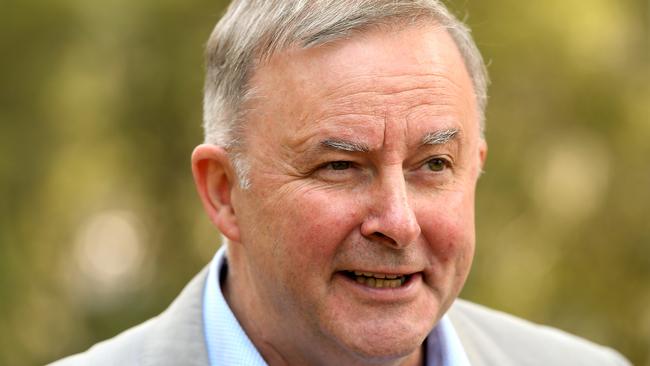
Anthony Albanese has declared “renewables are cheaper than fossil fuels” as he rejects the need for a new coal-fired power station to be built in Australia.
The Opposition Leader said there was “no law against” building a new coal-fired power station and there was nothing stopping investment in traditional form of generation.
“I have said very clearly I do not believe there will be new coal-fired power stations built in Australia,” Mr Albanese said.
“If it was going to occur it can occur at any time. There is no law against it. The market is speaking and the market is saying renewables are the cheapest form of new energy.
“Markets will determine what the economics are of projects. And the economics of projects are showing that renewables are cheaper than fossil fuels and that change has occurred over a period of time. And one would expect that would continue.”
Liberal National MPs are pushing Scott Morrison to support the construction of a new coal-fired power station in central Queensland.
With the International Energy Agency predicting Australia’s coal exports will increase of the next five years, Mr Albanese said new coal mines would be built if there was global demand for the resource.
He said he was “pleased” by any jobs created in the coal sector by growing global demand.
“The issue of coal will depend upon demand and Australia exporting coal doesn’t create demand that demand comes from international partners for that resource like other resources as well,” he said.
“I’m pleased in terms of the jobs being created.
“The government doesn’t build coalmines. So they go through the environmental approval processes and those processes take place. Once they are approved the mines can go ahead.”
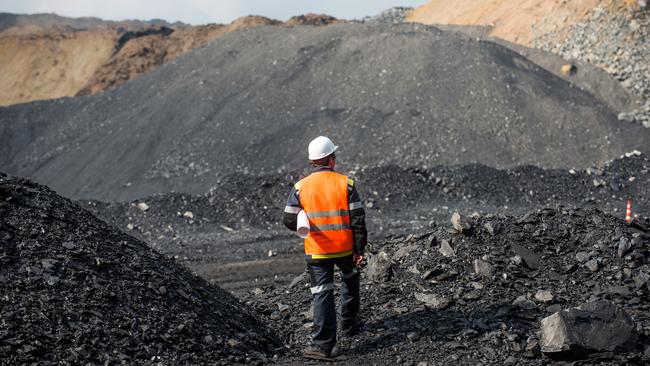
Asia’s hunger for coal lifts Aussie exports
Surging demand for coal in India and Southeast Asia, driven by rising electricity use, is set to fuel a strong increase in Australian coal exports over the next five years.
The International Energy Agency predicts a 4.6 per cent rise in coal-powered generation in India will drive the largest increase in demand for coal, while strong growth in Indonesia and Vietnam will lift coal demand by 5 per cent in those countries over the next five years.
The IEA said the rise in Indian and Southeast Asian demand would offset reductions in coal consumption in the US and Europe driven by a strong increase in the share of electricity produced by renewables.
Overall global coal demand increased by 1.1 per cent last year and is projected to remain steady until 2024. The IEA report forecasts total Australian coal production will rise by 1.4 per cent annually, from 409 million tonnes in 2018 to 444 million tonnes in 2024.
It forecasts Australia’s exports of thermal coal, used for power generation, will rise from 203 million tonnes to 223 million tonnes over the same period, while exports of coking coal, used for steel production, will increase from 179 million tonnes in to 196 million tonnes.
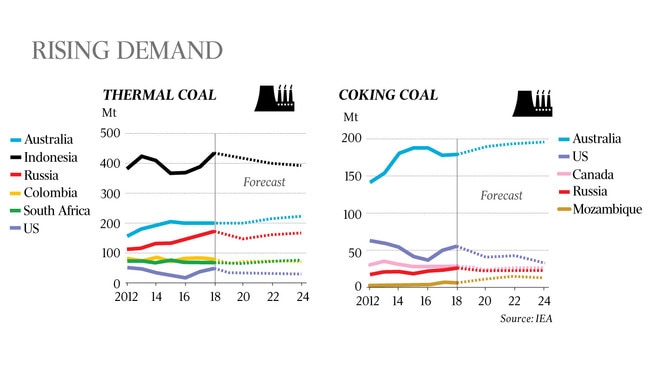
Coal will remain the largest single source of power supply over the next five years, although its share will decline from the high of 38 per cent reached in 2018 — up 2 per cent on a year earlier — to 35 per cent in 2024.
The report predicts Australia’s share of the global export market will rise, sparking calls for new coalmines in Queensland and NSW. Resources Minister Matt Canavan said “we will need more than Adani” to keep up with demand for coal from developing nations in Asia.
“That will almost certainly mean greater coal production in the Galilee Basin,” Senator Canavan said. “This report gives some confidence in the forecast potential of the Galilee Basin.”
The forecast rise in exports is likely to increase attacks by environmental activists. Senator Canavan has written to Siemens global chief executive Joe Kaeser, urging him “not to be intimidated by the noisy anti-coal minority” after the technology company flagged it would review its recent contract with Adani in the wake of activist attacks.
The predictions of robust demand for coal came after the UN annual climate change summit ended in Madrid without a consensus on how to finalise new international standards on emissions reductions. UN Secretary-General Antonio Guterres said he was disappointed with the outcome of the Madrid meeting.
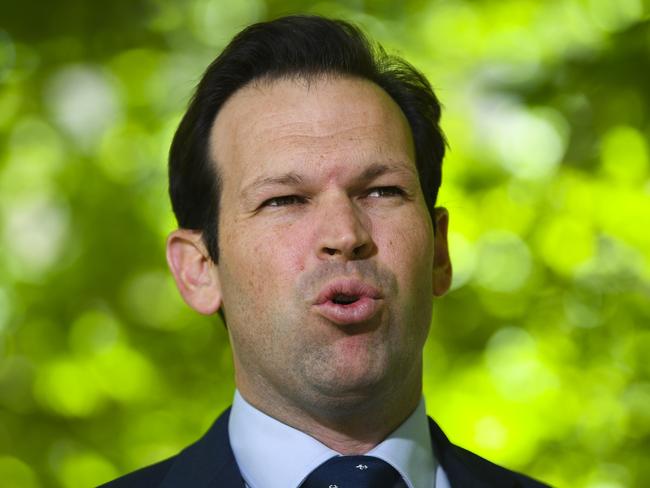
Opposition resources spokesman Joel Fitzgibbon, who holds the NSW coalmining seat of Hunter, said growth in coal exports would provide good opportunities for mining in the Galilee Basin.
“The report confirms demand remains strong and Australia is well placed to meet it with our relatively clean and efficient coal,” Mr Fitzgibbon said. “That will present good opportunities for the Hunter region and central Queensland, including the Galilee Basin.”
Labor leader Anthony Albanese declined to comment.
Minerals Council of Australia chief executive Tania Constable seized on the IEA figures to argue that predictions of a terminal decline in coal demand had been proven wrong.
“India and Southeast Asia rely on coal to build infrastructure for their rapidly growing populations,” Ms Constable said.
Greens MP Adam Bandt warned that “coal will kill us” and labelled the export predictions a “death sentence for Australia”.
“If we can’t rely on the market to save us from climate catastrophe, we need laws to phase out coal exports by 2030, because if you don’t have a plan to quit coal you don’t have a plan to tackle the climate crisis,” Mr Bandt said.
Siemens last week won a contract to deliver signalling systems for the rail network that will link the Adani mine to the export terminal at Abbot Point. Mr Kaeser said he would review the deal in light of complaints from activists. Senator Canavan wrote to Mr Kaeser, saying he was “concerned to see anti-development protesters targeting Siemens’ Australian worksites in an attempt to bully Siemens and its workers”.
“I urge you not to be intimidated by the noisy anti-coal minority targeting the Adani Carmichael mine project and companies providing services to it,” Senator Canavan said in the letter.
The IEA report referenced Adani’s Carmichael mine as an example of the lengthy approvals process thermal coal mines faced and warned that “investment conditions for coal mines are becoming more challenging”.
Senator Canavan’s call for more coalmines will put pressure on Mr Albanese, who last week endorsed jobs created by the Adani mine but failed to say he would welcome employment if other mines went ahead in the Galilee Basin. Infrastructure being built by Adani could pave the way for other projects, including the Gina Rinehart-backed Alpha coal mine and the Clive Palmer-backed Waratah mine.
The IEA report showed that Australia’s coal exports rose by 0.8 per cent last year to 382 million tonnes which, combined with higher prices, resulted in record revenue of $US67bn ($97.5bn) and saw coal outpace iron ore as the nation’s most valuable export commodity.
India will account for the biggest contribution to coal demand growth in the next five-year period, with a 4.6 per cent annual rise in coal power generation despite fourfold growth in renewable energy generation. China, responsible for half the world’s consumption, saw its consumption increase by 1 per cent last year but the IEA expects modest growth in the years ahead, with demand plateauing in 2022.



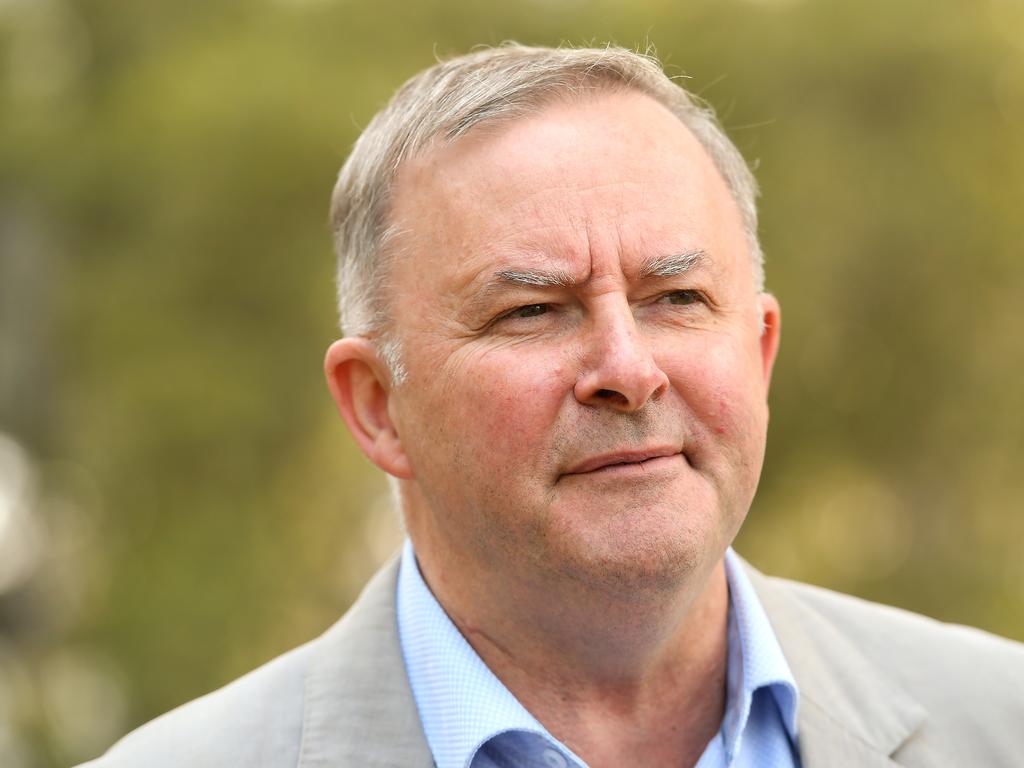

To join the conversation, please log in. Don't have an account? Register
Join the conversation, you are commenting as Logout